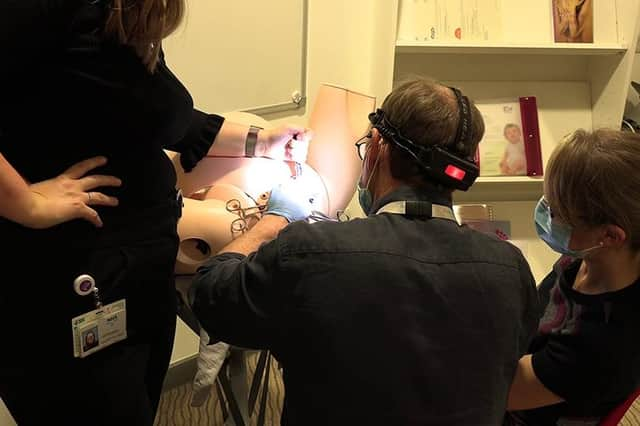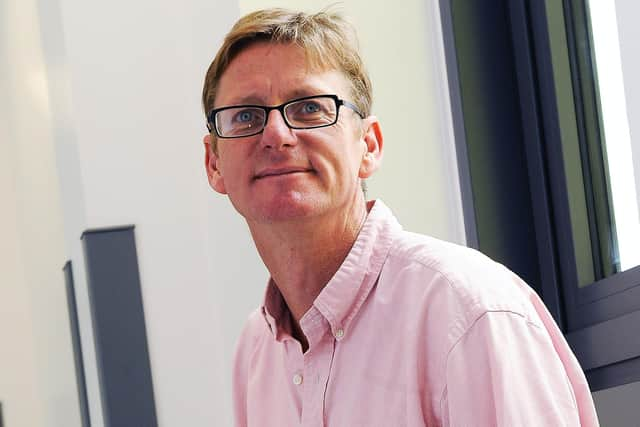Fife consultant's pioneering simulator helps health staff prevent late miscarriage


The simulator was invented by Dr Graham Tydeman, the highly respected retired consultant in obstetrics and gynaecology, who spent over 20 years with NHS Fife.
He created it with St Thomas’ Hospital, London, and Limbs & Things.
Advertisement
Hide AdAdvertisement
Hide AdThe lifelike simulator allows trainees to perform hands on cervical cerclage in advance of a real-life emergency.


Cervical cerclage involves an emergency stitching around the cervix and is necessary when the cervix shortens or opens too early during pregnancy, helping to prevent late miscarriage or extreme premature labour.
The procedure is uncommon and the simulator was developed by Dr Tydeman following a request from medical trainees across the UK.
It has already been warmly received by hospitals and training institutions across the world – with orders from countries including New Zealand and India. Every unit sold will see ten per cent of the unit cost go towards supporting the work of the research and development department in Fife.
Advertisement
Hide AdAdvertisement
Hide AdDr Tydeman said: “The reason this was developed is that it is not a common procedure and is very difficult to teach trainees.
“Increasingly women are understandably asking about the experience of their surgeon and anyone having this procedure understandably does not want it to be the first one that a doctor has ever done because if it goes wrong there could be tragic consequences with loss of the baby.
“However, if a trainee has shown suitable skills using this simulator, I would be able to confidently reassure women that the doctor had been adequately trained, although a more experienced person would always help during the actual operation for the first few procedures on real women.”
Kirkcaldy gift card to boost 'shop local' message nets thousands of...Chelsea footballer donates signed shirt to £100k fundraiser for Fife...Fifers warned after bird flu case found in Fife town
Advertisement
Hide AdAdvertisement
Hide AdHe added: “We wanted to make the simulator as true to life as possible, so it was taken to experts from all over the world for their design input before the final product was decided upon.”
Every unit sold has NHS Fife branding on it and a percentage of the sale price comes to back to the regional research and development which has led so much ground breaking work.
Dr Tydeman said: “ Our department, and research in general in Fife, is disproportionate for the size of the unit.
“Whenever I go to research meetings, very commonly there is a map shown of the centres that have contributed to research and as expected there is a lot of participation from the main universities in the UK - but also there is commonly one little dot up here in Fife because we are contributing so much to national and international research as well as the development of ideas like this simulator.”
Advertisement
Hide AdAdvertisement
Hide AdLaura Stirrat, speciality trainee, has been undergoing highly specialist medical training for the last five years.
She said: “In the course of my training I have only seen cervical cerclage a handful of times.
“Having the opportunity to practice a skill several times in a safe setting helps to build confidence.
“It is essential for our training and for patient safety that we have the opportunity to learn some of these difficult and complicated procedures on a model before we are performing them in an emergency situation.”